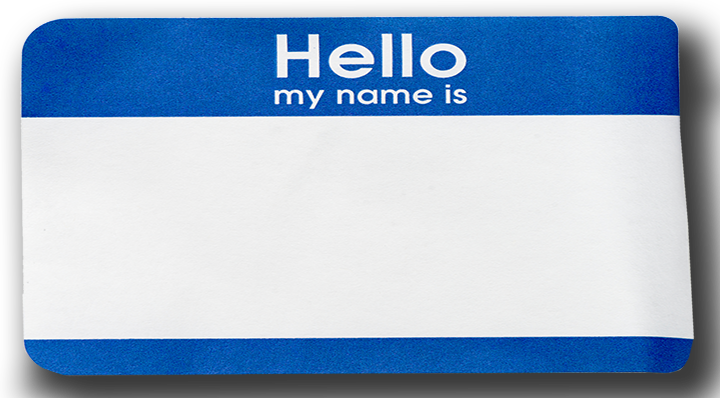How to Name Your Characters in a Novel
Choosing the right name for a character in your novel can be as hard as choosing the right name for your child (if not harder). An author wants her characters’ names to be memorable and meaningful and to fit each character so well that no other name will do. In addition to that tall order, the name must also be natural for the era and geographic region of the book’s setting, as well as be ethnically appropriate.

Sometimes the names “just come” to a writer. The characters form in the author’s mind with names firmly attached. At other times the names organically emerge somehow once the story takes off. But when a name proves more stubborn, the search for the perfect one can prove to be a maddening exercise. To make it easier, here are a few tricks of the trade.
Fitting the era can be quite simple for writers in the United States. On their website, the Social Security Administration lists the top 100 names given to babies each year since 1879. For older names, or for names in other countries, you can check out historical texts or read books written in the era you are focused on. A simple start would be to enter a year and geographic place into an internet search. For example, entering “1723 London England” into Google’s search field brings up several results with names in them: John Robinson, Christopher Wren, and Thomas Stevenson. Clicking on one result will bring you to a Wikipedia page discussing Great Britain’s Cricket Season of 1723. Just skimming through that article, many names come up giving you plenty of fodder for era- and geo-appropriate characters.
Authors can also turn to classic texts for inspiration. However, if you choose that route, be picky and choose wisely. Remember, you want your reader to willingly suspend disbelief while reading your book, right? Well, if you decide to use something like “Odysseus” for a modern-day romance when all the other characters in your book are named things like Sydney, Malcolm, Heather, and Joel, then one of those characters needs to ask Odysseus about his name. Some names need to be justified outright in a work, and Odysseus is one of them. However, you could get by using it in a literary work or something a little quirky or symbolic.
The idea to keep in mind regarding classic texts is that our oldest works of literature give us actual reasons to name characters. Let’s use Odysseus’ story, The Odyssey. A minor character in it is named Cassandra, a name that comes from the Greek word for “she who entangles men.” According to legend, the Greek God Apollo gave Cassandra the gift of prophecy in an attempt to seduce her. When she refused, he got even by cursing her so she would never be believed. So the name Cassandra, or Cassie, would be perfect for a character no one believes or is not taken seriously when she tries to warn people to avoid danger.
When it comes to making a name meaningful, simply looking up definitions in a baby naming book or website could be very easy and useful. In fact, babynames.com allows you to search for names by meaning. So if you do have a modern character in a romance and he or she happens to be an attorney, you might try popping “defender” into the site’s “Advance Search” engine. If you do, you’ll be given several versions of “Alexander,” which comes from the Greek word for “Defender of men.”
Memorable names might be a little harder to develop but are definitely worth spending the extra time and energy to find them. Usually, a bold or unusual name will be easily remembered by your reader. One trick to making names memorable is to use alliteration. Think: Bilbo Baggins, Lois Lane, Willy Wonka.
If alliteration isn’t your game, another technique is to use a multi-syllable noun, surname, or placename for the character’s first name and then provide a common name for the surname. Some examples from popular films and books: Hannibal Lecter, Indianna Jones, and Huckleberry Finn.
One final tip comes from an old game: use a pet’s name as a first name and a street name as a last name. We bounced this around the office and came up with Ziggy Hill, Mitzy Grant, Max Bluff, Hugo James, Indigo Woodleigh, and Beaubeau Sussex. We even came up with the perfect names for a preppy couple: Buffy & Moose Rosemont. You know those two have dinner at the club every week!
Of course, if you’re writing comedy or satirical works, none of the rules apply. In fact, doing the opposite of the above techniques could lead to the perfect choice. As would using a name that sounds like it has the opposite connotation for the character. Terry Pratchett is a master of that last technique. No one will ever forget the name he gave to Death’s White Horse: Binky.
As you can see, as with everything in life and literature, when it comes to naming your characters, there is no one-size-fits-all approach. You could fill your books with names of your ancestors. You could take the first name of your biggest rival in high school and the last name of her best friend and make that the name of your villain. Or you could even name them all the names that your spouse vetoed when you were picking out names for your children. All those techniques are valid—as long as the names seem to fit your characters.